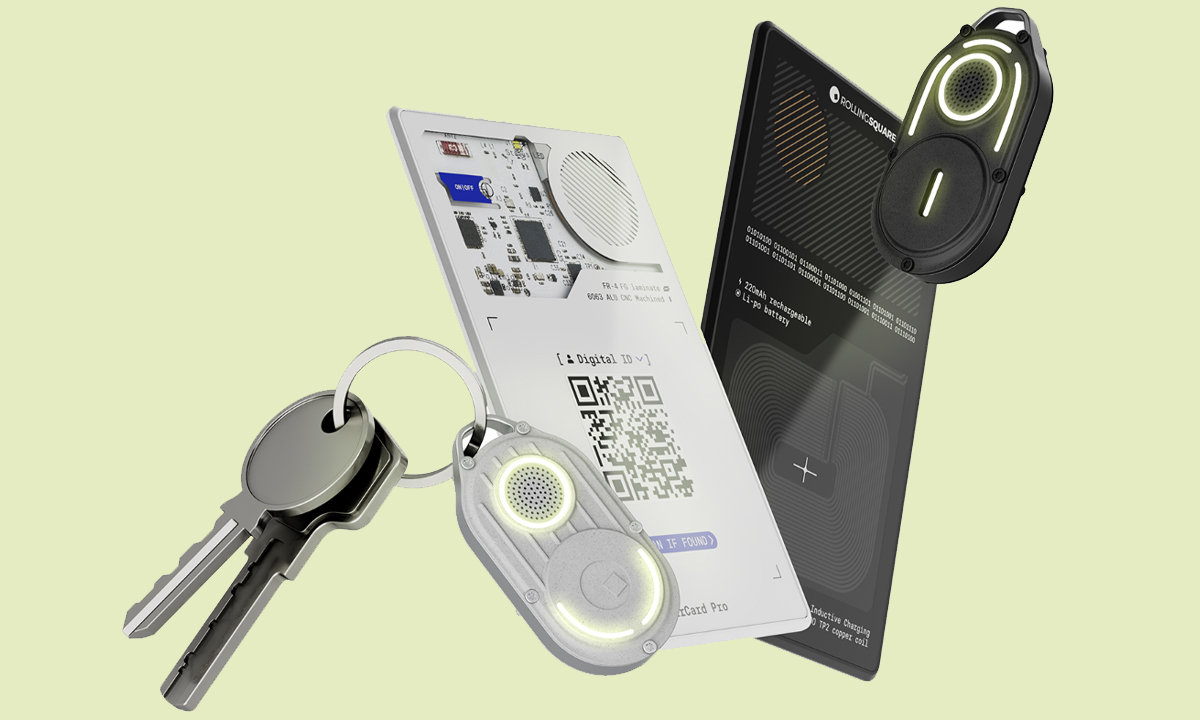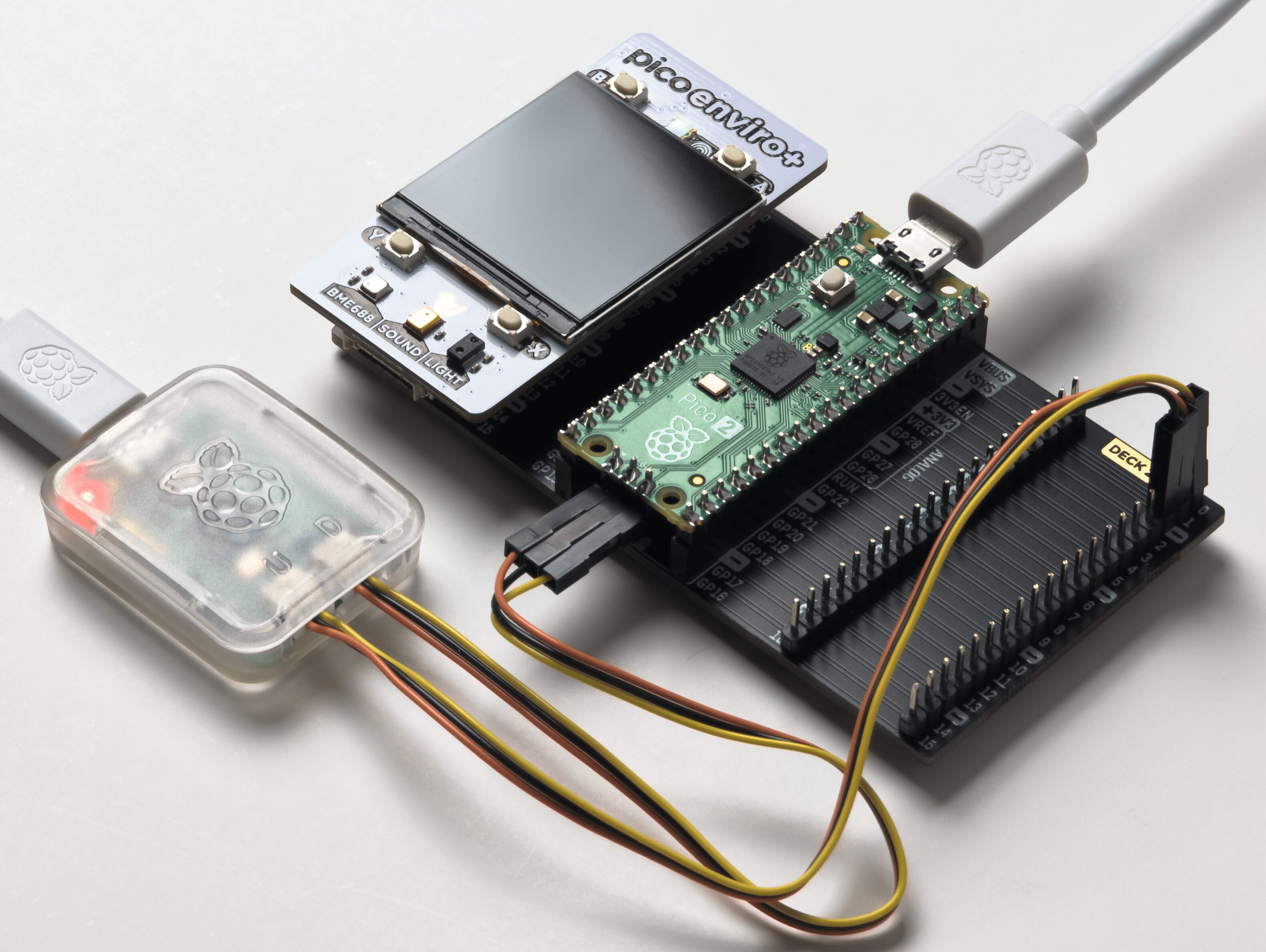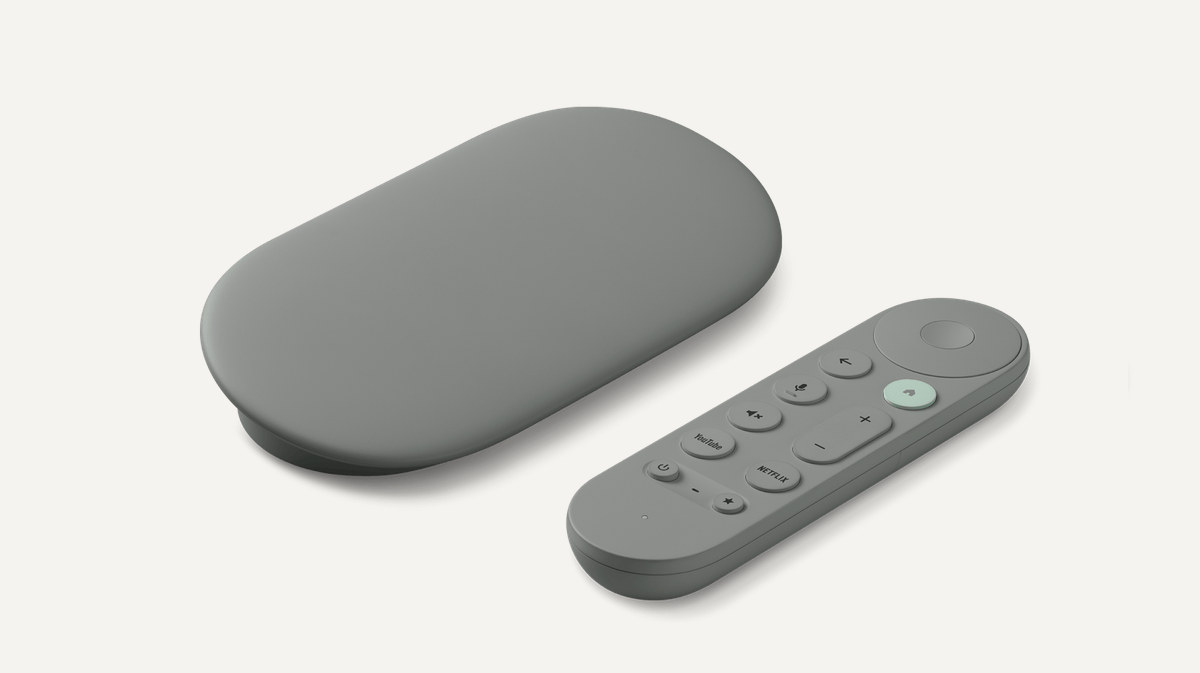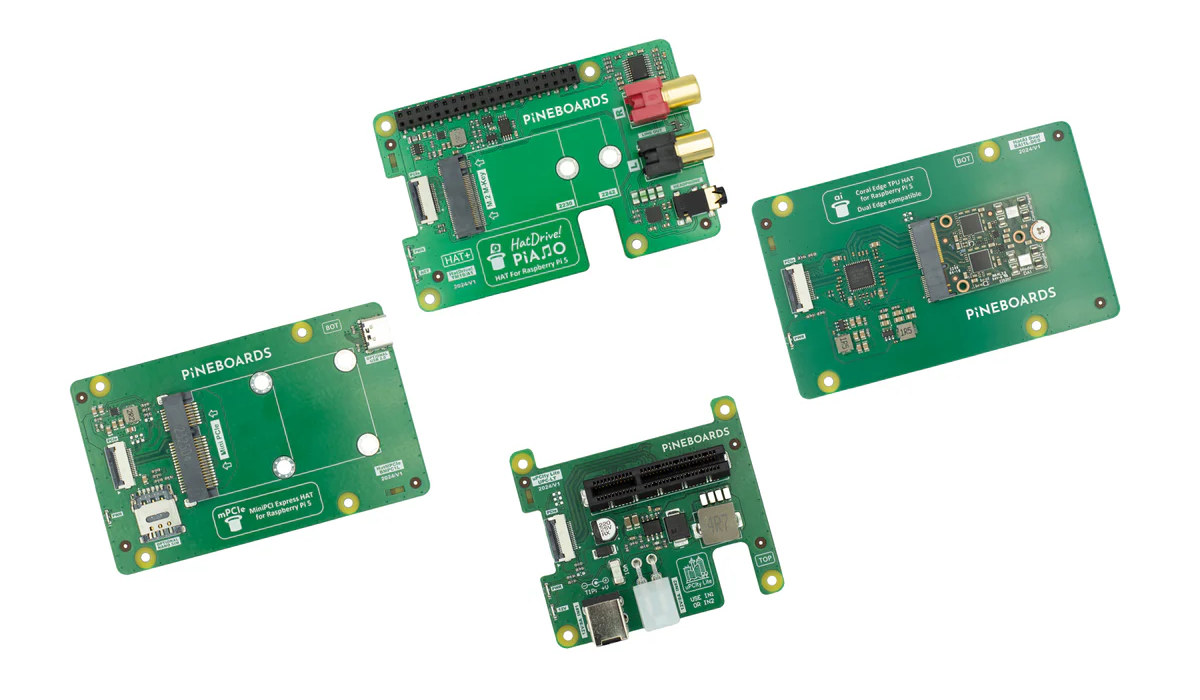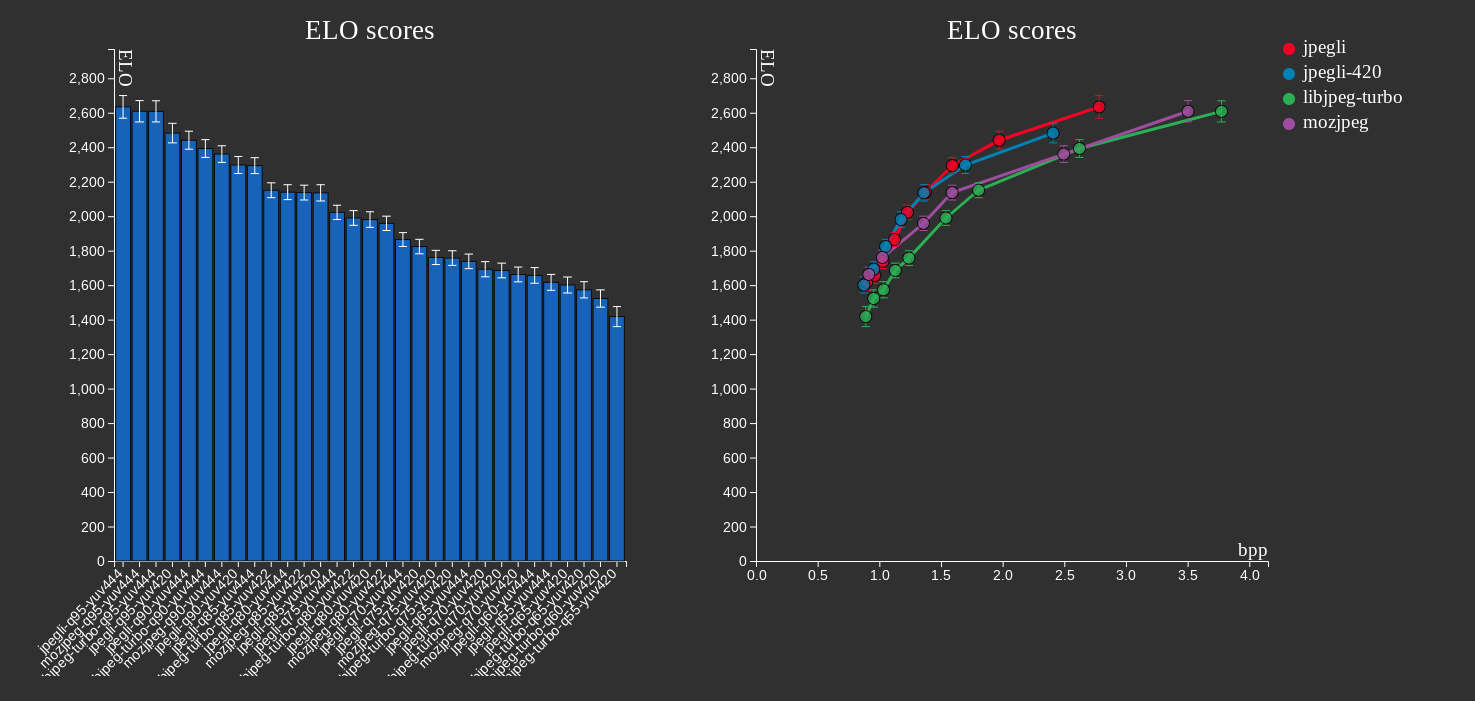Google releases a new Android version every year, and while the first Android 15 developer preview was released this year in February, the company has already announced the first Android 16 developer preview just a couple of months after the official release of Android 15 on AOSP in an “effort to drive faster innovation in apps and devices”. More specifically, Google plans to release two Android APIs next year: a major SDK release in Q2 2025 instead of Q3 followed by a minor SDK release in Q4 2025 that won’t include behavior changes that may require changes in apps, but only pick up feature updates, optimizations, and bug fixes. The change was mostly made to better accommodate the device launch schedule of smartphone manufacturers. That almost means many more changes are expected between the preview and the beta release. As of now, Google has only announced a few new features […]
AirCard Pro and AirNotch Pro Bluetooth trackers support Google/Apple network integration (Crowdfunding)
Rolling Square introduces its latest Bluetooth trackers – AirNotch Pro and AirCard Pro – designed for use with personal items like keys, wallets, bags, and more. Both trackers are designed for portability, and the AirNotch Pro is designed as a keyring, while the AirCard Pro suits wallets with a thinner, credit card-like design. The products integrate into Apple and Google’s tracking networks, with some features currently limited to Apple. Previously, we covered the SenseCAP T1000, a credit card-sized LoRaWAN GPS tracker powered by Semtech’s LR1110. Several years ago we covered some Bluetooth beacons such as the Puck.js or RuuviTag, but we have yet to explore Bluetooth-only trackers with wireless charging capabilities. Rolling Square AirCard Pro Bluetooth trackers AirCard Pro technical features: Network White version – Operates on Google’s Android Find My Device network (Android 6 or above) Black version – Operates on Apple Find My network (iOS 14 or above) […]
Google Pigweed SDK now supports Raspberry Pi RP2350 microcontroller
Google Pigweed, a collection of open-source libraries for embedded software development, now supports the Raspberry Pi RP2350 MCU and comes as a software development kit (Google Pigweed SDK). These libraries, also called modules, are building blocks that make embedded software development faster and more reliable. It targets tiny 32-bit microcontrollers such as STMicro STM32L452, Nordic Semi nRF52832, and the Raspberry Pi Pico line of microcontrollers. The library components have shipped in Google Pixels, Nest thermostats, robots, satellites, and drones. On August 8, the Pigweed project was released as a software development kit (SDK) in developer preview with official support for Raspberry Pi RP2350 and the associated Pico 2 development board. The new release uses the Bazel build system – a feature upstreamed into the Pico SDK by the Google Pigweed team – and a complete, open-source Clang/LLVM toolchain. The Google Pigweed SDK includes sample code, modules, and a comprehensive tutorial […]
Google kills the Chromecast, introduces the Google TV Streamer for both video streaming and Smart Home control
Google has just announced the Chromecast media streamer would be phased out, introducing instead the Google TV Streamer for both TV streaming and the Smart Home with not only gigabit Ethernet, WiFi 5, and Bluetooth 5.1 connectivity, but also Matter support and Thread border router function. The Android TV device comes with 4GB RAM and 32GB eMMC flash, an HDMI 2.1 port supporting up to 4Kp60, and a USB-C port for power and data. A voice remote control is also included, and the solution is not integrated with the Smart Home allowing users to connect to locks and motion sensors through Thread/Matter, monitor their security camera systems, and more. Google TV Streamer specifications: CPU – Not disclosed, but allegedly the MediaTek MT8696 quad-core Arm Cortex-A55 processor @ 1.8 GHz, Imagination GE9215 GPU @ 750MHz as found in the Amazon Fire TV Stick 4K Max is used here. System Memory – […]
/e/OS v2 privacy-focused, Google-free Android mobile OS released with improved UI, Android Auto support, etc..
The e Foundation has just announced the release of the /e/OS v2 Android-based Google-free open-source mobile operating system with an improved launcher, support for Android Auto, a “Wall of Shame” to identify the most leaking apps and tracker, QR Code scanning support in the camera app, and more. Most Android smartphones come with Google services which may be convenient (and help keep Android free), but come at the loss of the users’ privacy. That’s why the e Foundation started offering e/OS over five years ago to offer a privacy-focused version of Android without Google services on specific phones. The project has evolved over the years, over 200 mobile devices are supported officially and unofficially, and Murena, a for-profit company, has also been established to sell e/OS smartphones and cloud services. /e/OS v2 highlights and changes: Based on LineageOS 20 with the latest bug fixes and security updates (itself based on […]
Android no longer supports RISC-V, for now…
Google dropped RISC-V support from the Android’s Generic Kernel Image in recently merged patches. Filed under the name “Remove ACK’s support for riscv64,” the patches with the description “support for risc64 GKI kernels is discontinued” on the AOSP tracker removed RISC-V kernel support, RISC-V kernel build support, and RISC-V emulator support. In simple terms, the next Android OS implementation that will use the latest GKI release won’t work on devices powered by RISC-V chips. Therefore, companies wanting to compile a RISC-V Android build will have to create and maintain their own branch from the Linux kernel (ACK RISC-V patches). These abbreviations can be confusing, so let’s focus on them starting with ACK. There’s the official Linux kernel, and Google does not certify Android devices that ship with this mainline Linux kernel. Google only maintains and certifies the ACK (Android Common Kernel), which are downstream branches from the official Linux kernel. One of the main ACK branches is the android-mainline […]
Pineboards adds four more Raspberry Pi 5 PCIe HAT+ boards with PCIe x4 slot, mPCIe socket, Coral Dual Edge TPU support, and audio ports
Pineboards, previously known as PineBerry, has launched four new Raspberry Pi HAT+ with a PCIe interface: the Hat uPCIty Lite, HatDrive! Piano, Hat mPCIe, and Hat Ai! Dual. The Polish company decided to change the name from Pineberry to Pineboards since the “berry” name implied they were manufacturing single-board computers, while Pineboards, not to be confused with Pine64 boards, apparently does not :). Nevertheless, let’s have a look at the four new HAT+ boards. Hat uPCIty Lite – PCIe x4 slot and ATX power supply Specifications: Supported SBCs – Raspberry Pi 5 and other SBCs with a compatible 16-pin PCIe FPC connector and form factor PCIe 16-pin PCIe FPC connector (input) PCIe X4 slot (output) to connect PCIe cards such as NVIDIA or AMD graphics cards; Note: only PCIe x1 Gen2 and Gen3 are supported Misc – 12V and PWR LEDs Power Supply 12V/8A via ATX power connector 12V/8A via […]
Google’s Jpegli open-source library can compress high quality images 35% more than traditional JPEG codecs
Google has released the Jpegli open-source library for advanced JPEG coding that maintains backward compatibility while delivering an up to 35% compression ratio improvement at high-quality compression settings. Google Research has been working on improving the compression of data (Brotli), audio (e.g. Lyra V2), and images with a project such as WebP for many years in order to speed up the web and make it consume less bandwidth for dollar savings and lower carbon emissions. Jpegli is their latest project and aims to improve the compression ratio of legacy JPEG files on systems were modern compression such as WebP may not be available or desirable. Jpegli highlights: Support both an encoder and decoder complying with the original JPEG standard (8-bit) and offering API/ABI compatibility with libjpeg-turbo and MozJPEG. Focus on high-quality results with up to 35% better compression ratio. Just as fast as libjpeg-turbo and MozJPEG. Support for 10+ bits […]



